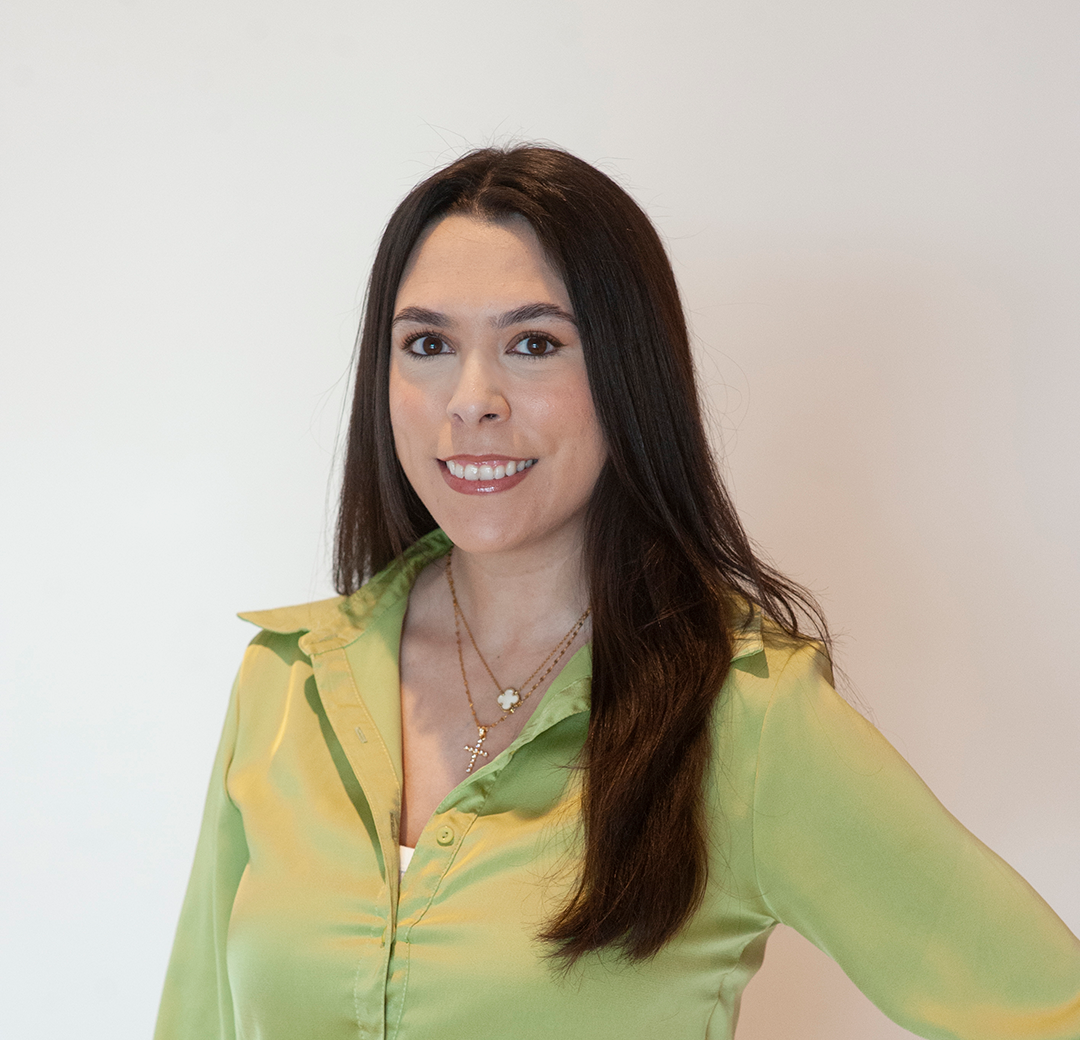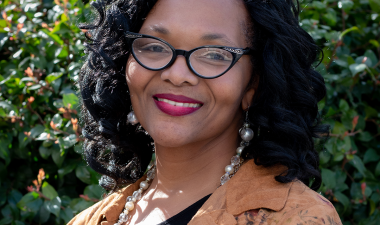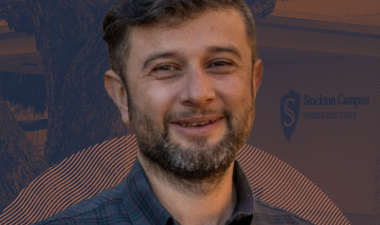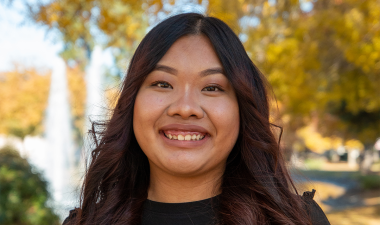Caleigh Mendez waited a long time to enroll in college, and now that she’s a third-year student at Stanislaus State, she’s planning to stay a while.

The 32-year-old psychology major dreams of becoming a school psychologist, and as she pursues her bachelor’s degree, Mendez, a McNair Scholar, is already thinking ahead about attending graduate school.
The McNair Scholars program is for first-generation, low-income or underrepresented students who demonstrate academic success and an interest in pursuing graduate studies.
Mendez, a transfer student from Modesto Junior College and member of the University’s Honors Program, checked all those boxes, something she might not have done when she graduated from Atwater High School.
She was a good student and involved in extracurricular activities: she was a cheerleader, class vice president and yearbook editor, to name a few. Although her parents didn’t attend college, they encouraged her to go.
“I just didn’t know what I wanted to do, and I didn’t want to waste time going to school when I didn’t know what I wanted to do,” Mendez said.
She got a job instead and worked for a long time at Target before seeking something that would align with her goals for a potential future career.
While searching the education job website EdJoin, she found a position with the Merced City School District working with special-needs students. Mendez’s roles have varied, from working part-time in classrooms with students with severe behavioral issues to her current full-time job at the district office where she is part of the team that works with case managers, school psychologists and speech pathologists on individual education plans (IEP) for students.
The work introduced Mendez to the realm of special education and steered her career choice when she decided to attend college.
Her supervisor at the district office also is helping to guide her.
“I’ve always loved kids and I’ve always had a great connection with them,” said Mendez, who has no children of her own. Her love of children inspired her to seek work in education, and once there, Mendez was exposed to the students’ needs.
“My heart went out to them,” Mendez said. “There have been a lot of kids I’ve worked with who came from broken homes. They didn’t have parents. They were in the foster system. They felt they had no one.
“Hearing their stories, talking to them and having them open up and feel comfortable around me made me feel this is what I need to be doing. I need to help these kids who feel like they have no one.”
Mendez knew she didn’t want to teach, and her psychology studies and work with others in the field led her to pursue a career as a school psychologist.
She schedules her classes around her full-time job with the Merced school district and has no regrets about her decision to wait to attend college.
“I feel it happened for a reason,” Mendez said. “I’m taking advantage of being in school now that I’m older and wiser.”
Mendez said she spent her 20s hanging with friends and going out. Now, she still enjoys time with friends, but has clearer career goals.
“I feel I’m more passionate and driven, being older,” she said. She’s working toward her degree, is part of the Honors Program and as a McNair Scholar, she is planning a research project and exploring graduate school programs.
Her experiences while attending Stan State have exceeded her expectations.
“I love it,” Mendez said. “I feel like there’s a great support system, especially now with the McNair Scholars Program, my peers and mentors.”
Additionally, McNair Scholars receive assistance with the graduate school enrollment process and can visit universities with graduate programs where they may want to enroll.
The McNair Program, which Mendez heard about during New Student Orientation, allows her to blend her work life with her school life.
“I’ll be able to use my work as my platform and part of my study,” Mendez said.
She plans to interview friends who work as school psychologists, counselors, resource specialists and speech pathologists as she researches how learning and behaviors have changed in elementary school students post COVID.
“Where I work, its overwhelming how many new students we get referrals for and requests for them to have assessments to be put on IEPs, whether they have autism, are intellectually disabled, emotionally disturbed or have speech issues,” Mendez said. “The number of new requests we have received feels endless. Why? How? Since COVID, there are so many more. I want to know why.”
It’s intellectual curiosity that she’s ready to tackle, now.


